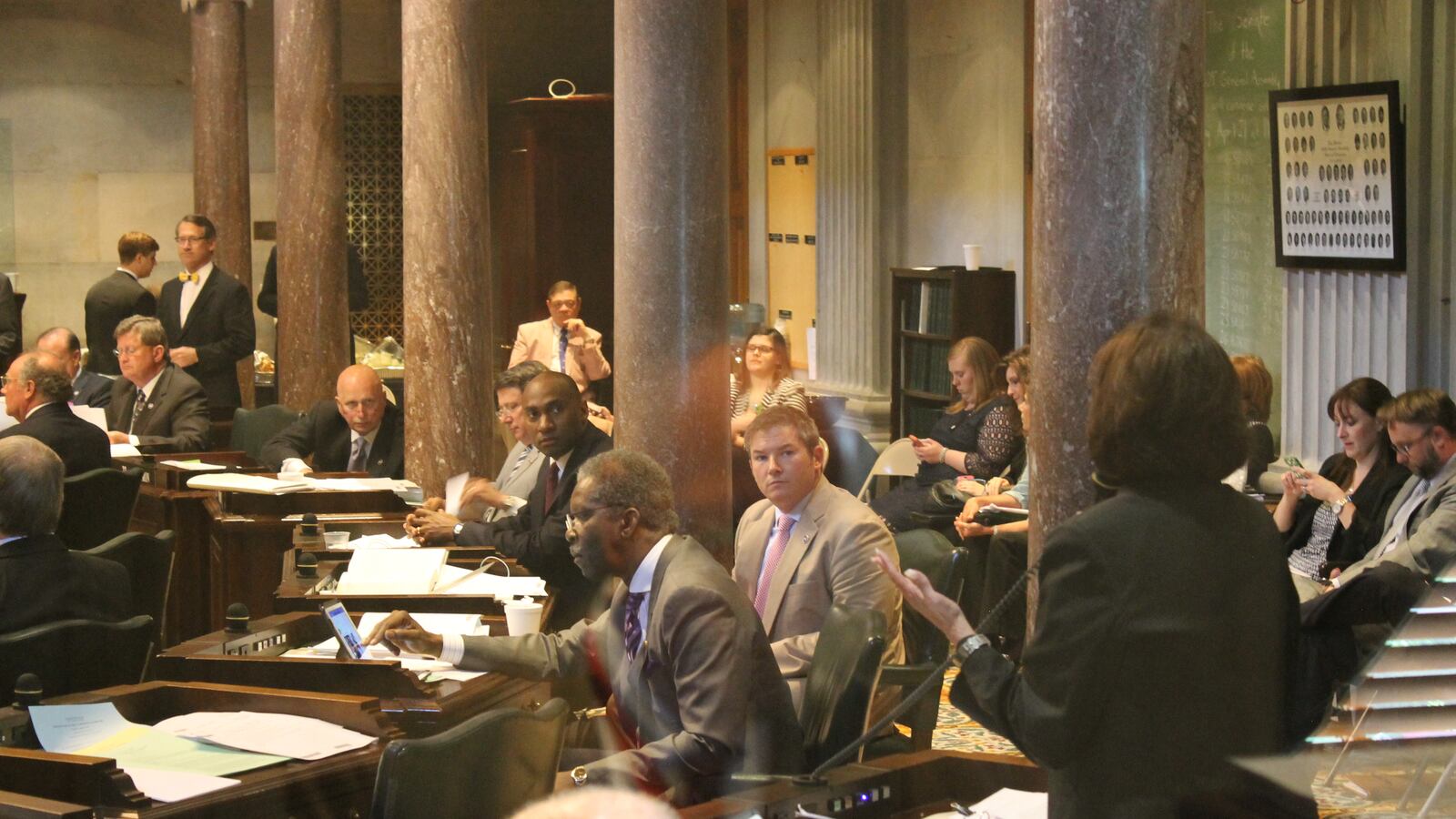Tennessee guidelines are so muddled on how funding should be allocated to charter schools that it’s unclear whether those schools are receiving the correct amount of money from their local districts, says a report released Tuesday by the state comptroller.
After analyzing five years of enrollment and funding data, the comptroller’s Office of Research and Education Accountability concluded that “there is insufficient clarity, transparency, and verification associated with the calculation and receipt of charter school funding in Tennessee.”
The report, requested last winter from Senate Education Committee Chairwoman Dolores Gresham, comes as debate intensifies in Tennessee about the cost and impact of charter school growth on traditional schools, as well as the adequacy of state funding for public education.
The State Department of Education already is preparing legislation to bring before the General Assembly next year to address some of the concerns about charter school funding.
The findings have special significance to Shelby County Schools and Metropolitan Nashville Public Schools, home to the vast majority of the state’s charter schools, which are independent but publicly funded schools operated under a charter contract between the school and its authorizing agency.
In Tennessee, local districts allocate funding to charter schools based on the district’s total funding from state and local governments, along with district and charter school enrollment. The report keys in on questions about which local district enrollment numbers to use when calculating money owed to charters. Districts generally use their previous-year enrollment.
Charter school funding = (state and local money / district enrollment) X charter school enrollment
But the report highlights one case in which the state instructed Shelby County Schools, seemingly against protocol, to use the district’s current-year enrollment instead of previous-year enrollment. That resulted in Shelby County Schools shelling out $517,000 more to charter schools at a time when Tennessee’s largest district was reeling from decreased funding due to an exodus of students entering six suburban municipal school districts created in 2014.
“State law, State Board of Education rules, and Tennessee Department of Education policies do not currently provide clear and complete definitions of formula components districts use to calculate charter school funding,” the report said. “The situation has resulted in a lack of uniformity in calculating funding for charter schools across the state.”
In growing districts, such as Metro Nashville, state guidelines are also unclear about allocation of additional state funds meant to offset cost of an increased student population. That ambiguity could cause charter operators to lose out on state money or give them an unfair increase if they aren’t growing at the same rate as the local district — all dependent on how administrators interpret the guidelines.
District leaders in both Memphis and Nashville have bemoaned the amount of education funding being siphoned off to charter schools. Nashville commissioned two independent studies in 2014 and 2015 on charter fiscal impact, both of which showed managing charter schools comes at considerable cost to the local district, largely because of the administrative tasks involved with approving and regulating them, as well as the fixed costs of school buildings and loss of student revenue.
"... There is insufficient clarity, transparency, and verification associated with the calculation and receipt of charter school funding in Tennessee."
Office of Research and Education Accountability
To Shelby County Schools board member Chris Caldwell, the report raises more questions about the state’s funding formulas than about districts’ handling of charter school funds.
“The real hypocrisy is the state talking about the lack of transparency and having a funding formula like (Basic Education Plan),” said Caldwell of the BEP, over which the district is suing the state. “The state has never done anything with the funding of education to be transparent about what they’re doing.”
Will Pinkston, a Nashville school board member and frequent charter school critic, was skeptical of report’s timing and of legislation being prepared by the state Education Department.
“This is a well-orchestrated prelude to a legislative agenda,” he said. “…This is about helping the charter movement.”
Leaders of the Tennessee Charter School Center commended efforts surrounding the report.
“Transparency and collaboration remain critical throughout this process and we look forward to working with the local districts and state officials to help establish increasingly more effective systems and procedures for accounting and distributing funds,” said a statement from the center.
Mendell Grinter, executive director of Campaign for School Equity, a black advocacy organization that promotes school choice, said the report rightly points out areas to improve with charter school funding, but misses the ongoing struggle for equitable funding for traditional schools.
“Are we also funding our traditional schools to what they’re needing? And the answer to that is no,” Grinter said. “We’re not doing enough at the state level, but the constant question is still going to be what we’re doing as a whole to make sure schools are getting the right amount of funding.”

